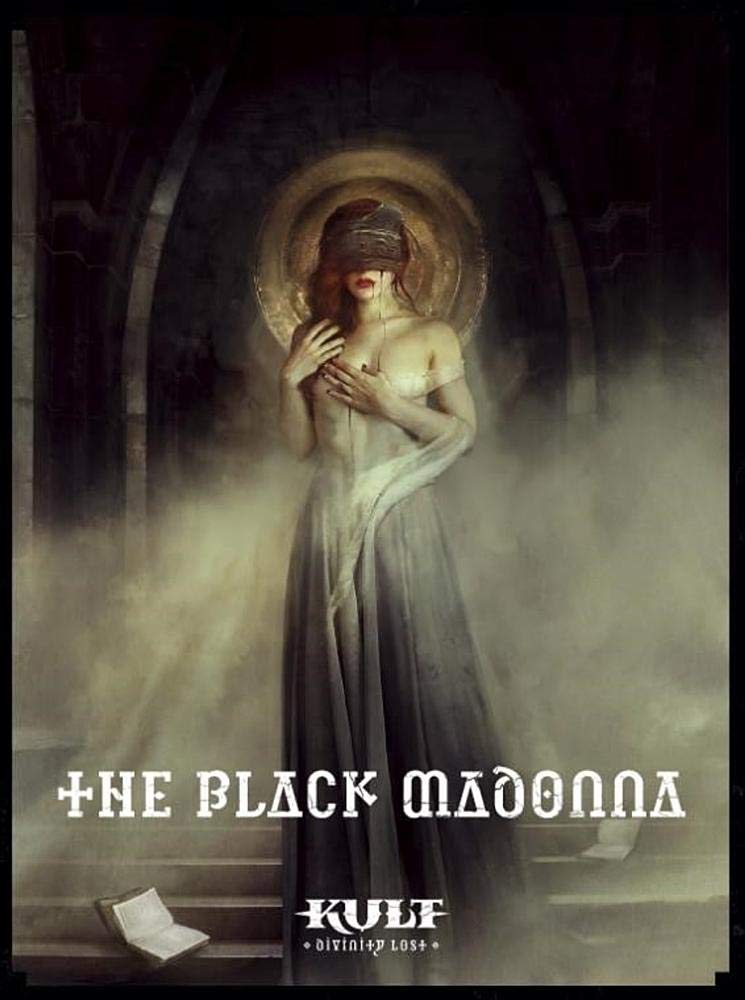In my A Game Per Year project, my goal has been to read one roleplaying game corebook for every year they’ve been published. However, I soon started to feel that it was hard to decipher how the games were really meant to be played. For this reason, I decided to start a parallel project, An Adventure Per Year, to read one roleplaying adventure for each year they’ve been published.

When I was a roleplaying teenager in the Nineties, the Swedish horror game Kult was understood to be the real deal: Actual occult content, uncompromising terror and intellectual sophistication! Black Madonna is an adventure published for Kult, originally in Swedish in 1991 and now in English for the new edition Kult: Divinity Lost in 2018.
When I read Kult as a teenager, I loved the bleak world of lies it presented but had no idea how to run it. I heard stories from cool-sounding games run by slightly older GMs and there was a legendary Finnish Kult larp called Yesod but unfortunately I missed all the generation-defining Kult action in my formative years.
Reading Black Madonna now, I understand why the game felt difficult to run. This is not a slight on the adventure, quite the opposite in fact! It shows that with a strong story concept, Kult’s framework can provide an evocative, spiritually interesting background for roleplay. It’s just that if you only have the core game, you have to do this work yourself as the GM even more than in most games.
Black Madonna begins in Germany. The characters know an old Russian woman called Magda who is sick with a mysterious illness. Soon the player characters are sick too and as they start unraveling the story, they learn that the story goes to Magda’s past in the Siege of Leningrad and involves immensely powerful inhuman creatures beyond human conception.
When it was released, Black Madonna was a contemporary adventure. Now, almost thirty years later, it’s set in 1991 in a specific period of European and Russian history. This feeling of time and place is perhaps the adventure’s greatest asset. It’s wonderful to read a roleplaying book that deals with these real-world issues without the usual American lens.
Structurally, Black Madonna resembles a Call of Cthulhu adventure. The characters have to start investigating and purposefully push forward for the story to progress. Although the illness creates an element of body horror, this is not really a character-based adventure. The focus is on experiencing all kinds of horrible things from a nightmarish insane asylum to a neo-Nazi hangout.
Although the details of the adventure can progress in different ways because the investigative initiative of the characters is important, in practice this is a railroaded adventure reminiscent of a house of horrors. There are not a lot of opportunities for the player characters to make meaningful choices.
Rather, the focus is on the gory, tortuous visions comprising the world of Kult.